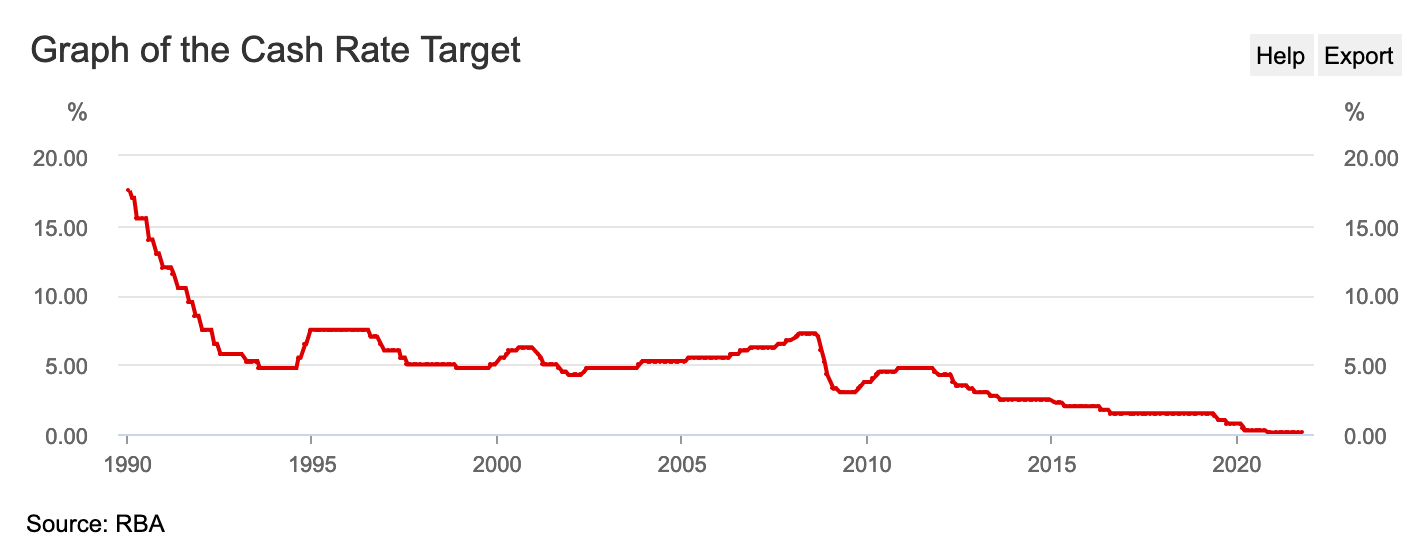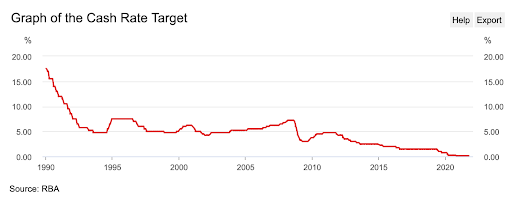Why do retirees care?

There were few surprises last week when the Reserve Bank decided for the 12th time in a row to leave the official cash rate at 0.10%
But what exactly is the cash rate?
And more importantly, what does this mean for retirees?
The cash rate target is one of the decisions made monthly by the Reserve Bank. Any changes to the cash rate takes place the following day. The cash rate is the interest rate on unsecured overnight loans between banks, so it has an important flow-on effect on bank lending rates.
The current historically low rates also have a direct effect on the amount of interest paid on cash or term deposits.
Many retirees keep large balances in cash. Some economists believe that too many retirees keep too much of their savings in cash.
Why?
Because increased longevity means that most of us are living longer in the retirement phase of our lives, through to our mid 80s or 90s and beyond. It follows that our money will need to stretch even further.
Having a large proportion of retirement savings invested at an interest rate of 0.1%, or even lower, could means losing money rather than making enough to live on.
The Reserve Bank Governor, Philip Lowe, had previously indicated that the current rate is unlikely to increase before 2024. He has now suggested that rates could rise in 2023.
As reported last week, commentators are now keenly awaiting the December 2021 Consumer Price Index, to see if the 3% year-on-year increase in September is repeated, or overtaken, by even higher price increases. This is likely due to a post lockdown spending boom, and spending on Christmas and travel.
If this is the case, the cash rate may be increased as early as February next year. But even if it is increased by one quarter or half a percentage point, this is not nearly enough to translate into significantly high returns on cash deposits.
If you still have a mortgage, low rates are helpful to service your debt.
If you don’t, but do have a high proportion of your retirement income invested as cash, it could be timely to review the return on these investments and how this fits with your overall retirement income strategy.
One of our advisers could help you with this.


